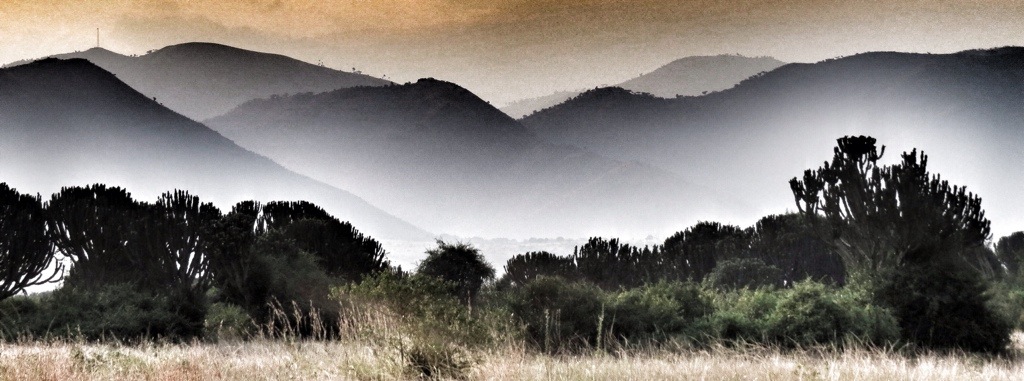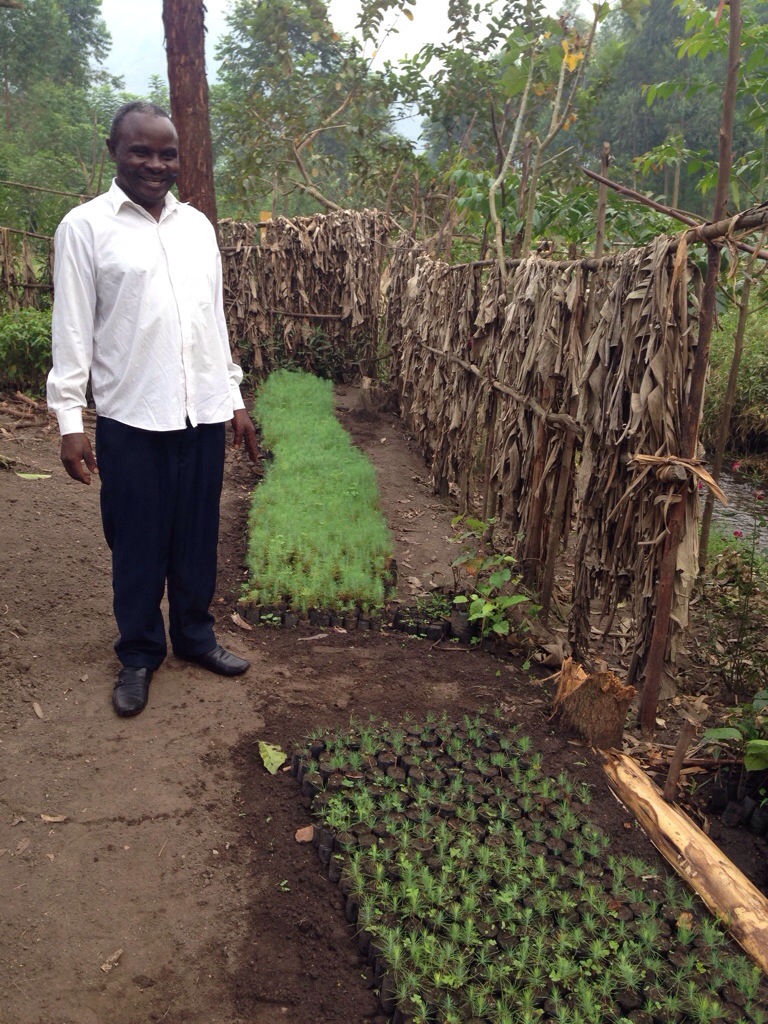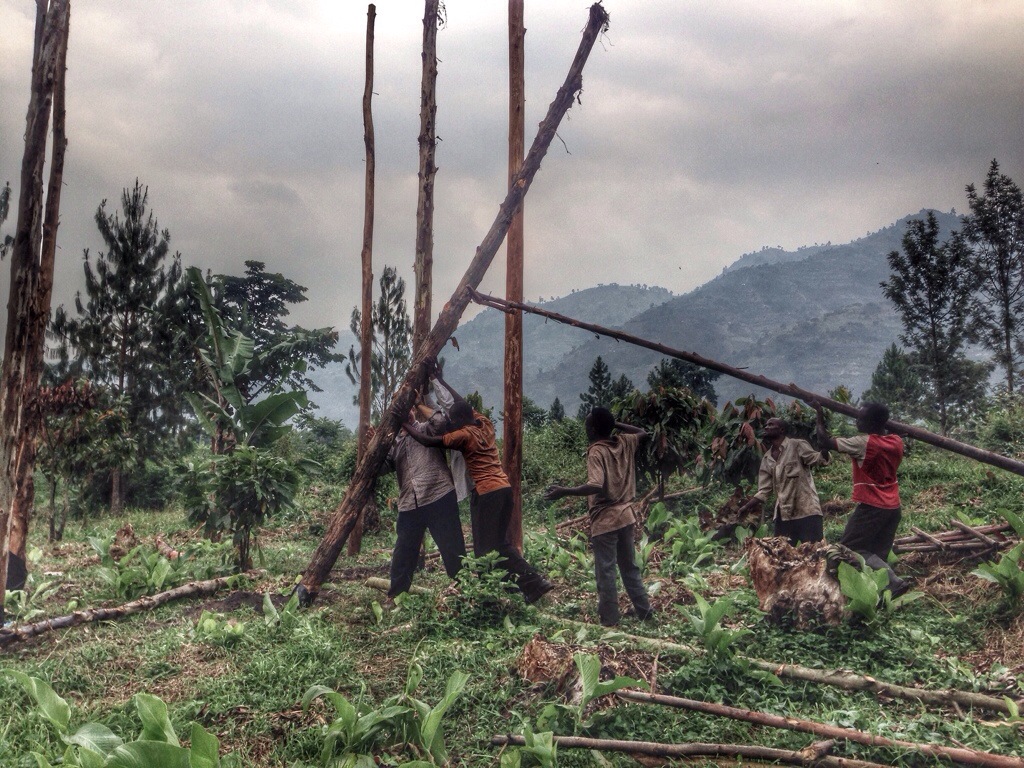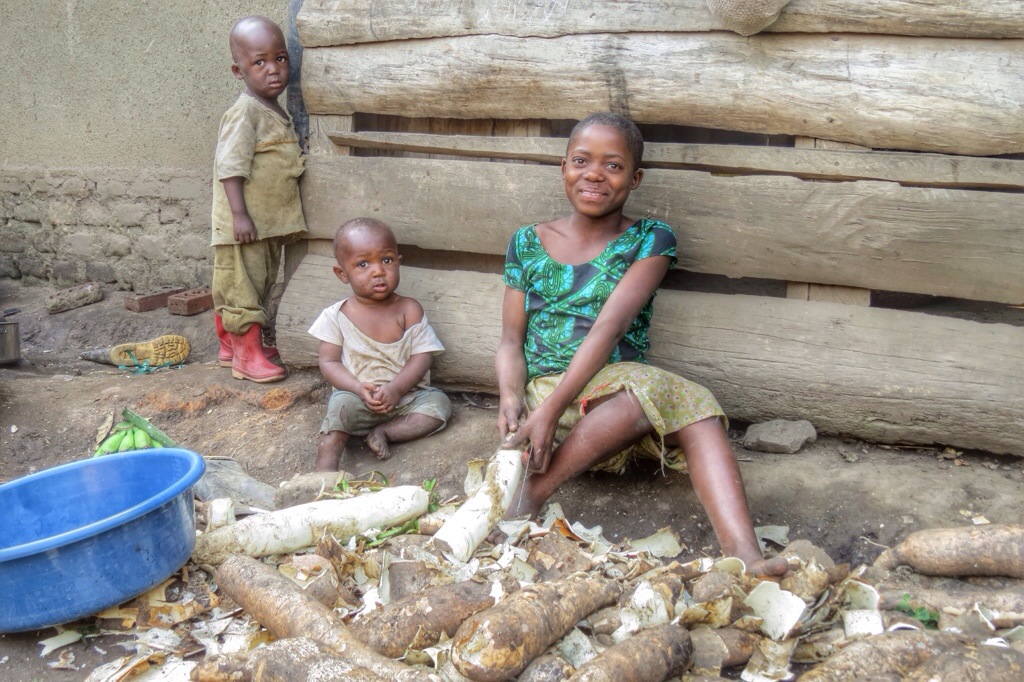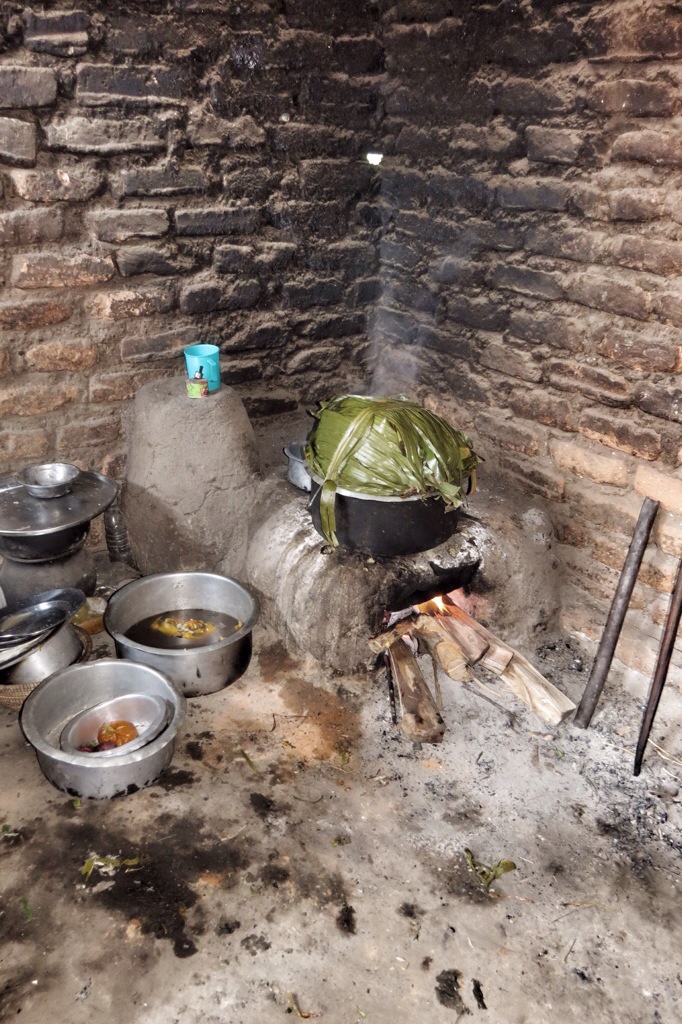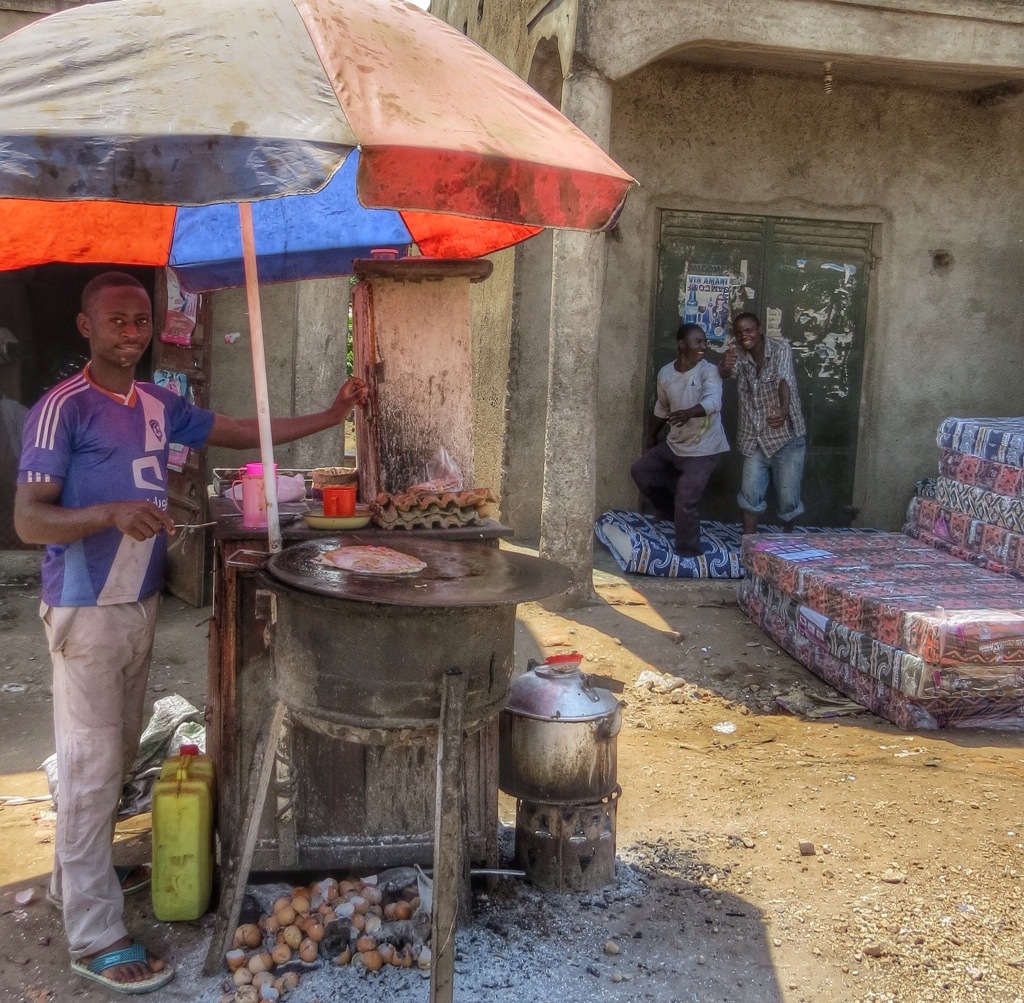We spent two weeks up in the southern Rwenzori Mountains and, as the team from Amaha We Uganda reported, the inter-tribal tensions have calmed. (Sorry, no wifi so no posts for the last few weeks).
In that one night of violence over 90 people were killed, including 20+ police. As is usual in Africa, conspiracy-theories abound: “It was Islamic extremists“; “It was the ADF“; “It was Government sponsored”; “It was some form of land-grab publicity stunt“; “It was just typical inter-tribal grudges“; etc.
Either way, within a few days 30 people had been arrested and (typical of not just Africa I guess) given Amnesty if they turned in the rest. While we were in Kasese one morning there was a huge military presence and an open-air Courts Martial was held where 140 suspects were tried and sentenced.
Life here rapidly returned to normal. ‘Normal’ to people here is far from normal to us in The West. It’s a very simple life in many ways. At least 6 days a week (often 7) it revolves around housework, working the land, mission work or school work.
I haven’t been anywhere in Africa (or at home) where people work so continuously. Pre-dawn, to late night. Electricity has only recently been installed to the centre of the mountain village of Kajwenge, where we were staying. It hasn’t yet reached the peripheral hamlet we were in.
Consequently everything must either be completed from dawn to dusk, or has to be done by candlelight / kerosene lamp. There are no distractions like television, computer games, Facebook. Other than school, there is little time for entertainment.
We’ve been staying with Benjamin, the Executive Director of Amaha We Uganda (AWU), his wife Irene and his (hugely) extended family. We’re here because Helene has been involved with AWU for some years and worked with the team in Kasese on her 5 previous visits.
These people never sit down, other than to eat or pray. Never.
In the 2 weeks we were there I never saw them idle. Never.
Think about that during the course of your day. How often do you take the weight off your feet, whether it’s whilst relaxing or working? These people simply don’t have time.
They’re up before 5.30am (the damn cockerel woke us at that time every day – and by then the family were already up an working). The men immediately start work for a couple of hours on the ‘Shamba’ – their farm plot that they walk to in the dark a mile or so away. The women start cleaning, boiling water, preparing food, etc.
Home around 8.30am for breakfast. Off to work immediately afterwards (anywhere within a 60-mile radius) on foot, on the back of a Boda-Boda (motorbike taxi) or – for the wealthy – on your own Chinese-built 125cc motorbike. Working outside in a combination of hot sun, high humidity and heavy rainstorms. Maybe try to fit in attending a funeral for a family member / close friend every 2-3 days, usually in some remote, hard to reach mountain village.
Man, that’s hard.
Back from work between 6-7pm. Then off to one of the Mission Projects – either, the Refuge that’s being built, or the Good Samaritan Centre, or a visit to one of the Women’s Cooperative projects, or put in some hard labour helping to build the Craft Centre or the new AWU community library / office.
Back for dinner around 9.30pm – 10pm.
Man that’s hard.
Food has to be harvested personally or bought at the next village. Every day. It’s brought home, walking with it balanced on the head, there’s no transport. If you want something, you walk to get it.
There’s no cooker, food processor, can-opener (no one would waste money on canned goods) vacuum-cleaner, coffee-maker or refrigerators (even families with electricity rarely have a fridge) so everything is prepared as needed and cooked fresh, on an open fire. Man, that’s hard.
There are no take-aways, fast-food deliveries of convenience foods to throw into the microwave if you had a rough day, or are late home. On rare occasions though, you might find a Rolex on the street! In this case though, a ‘Rolex’ is a chapatti cooked on a flat plate, filled with a couple of scrambled eggs & chopped pepper / onion, and then rolled. Rolled Eggs – ‘Rolex‘. Delicious.
After dinner (rarely before 10.30pm) at least an hour of pot-scrubbing or house & equipment maintenance begins.
Then a quick shower. In the dark. There is a shower room but no running water: standard practice is alternate buckets of cold water and hot (provided in Jerry Cans) from the fire that has to be kept burning all day in the kitchen. The kitchen itself is outside, the other side of the yard. Every trip back and forth from the dining room can be an obstacle course.
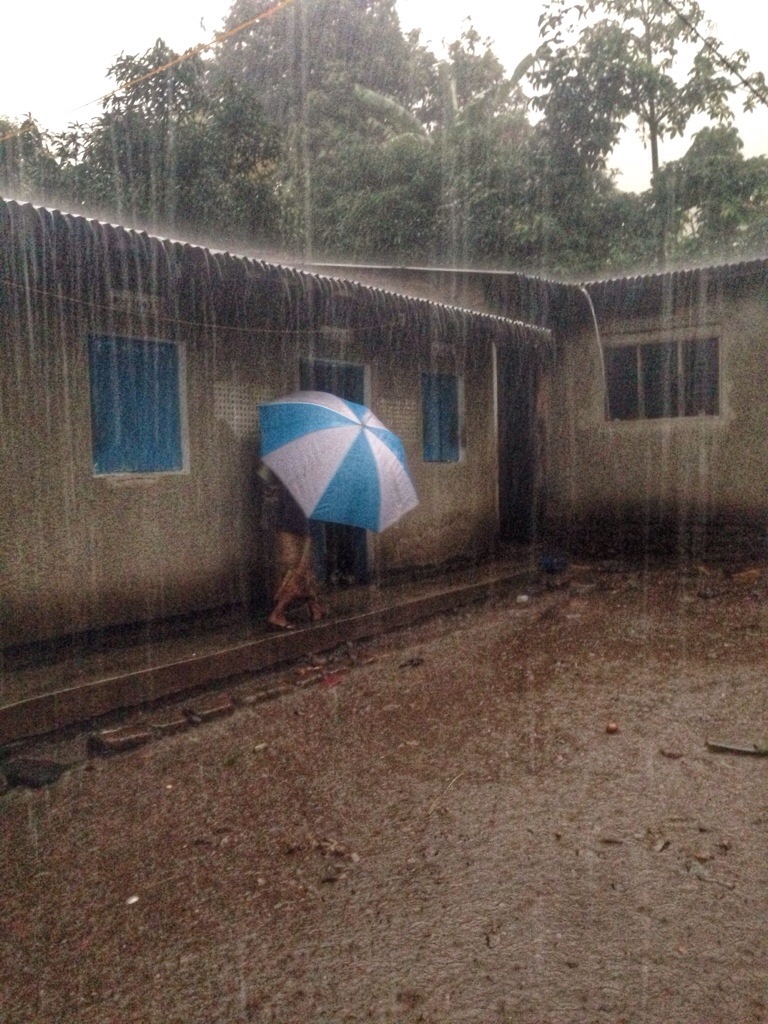 A few quick prayers with the family (the kids are still up – they’re the ones scrubbing most of the pots). Bed some time between 11pm and 12pm.
A few quick prayers with the family (the kids are still up – they’re the ones scrubbing most of the pots). Bed some time between 11pm and 12pm.
Repeat the following day. The day after. And the next, etc, etc.
Man that’s hard.
No car to get around in. No supermarket to buy supplies – grow it yourself, trade with a neighbour, or spend the little cash you have at a hole-in-the-wall market / shop in the next village.
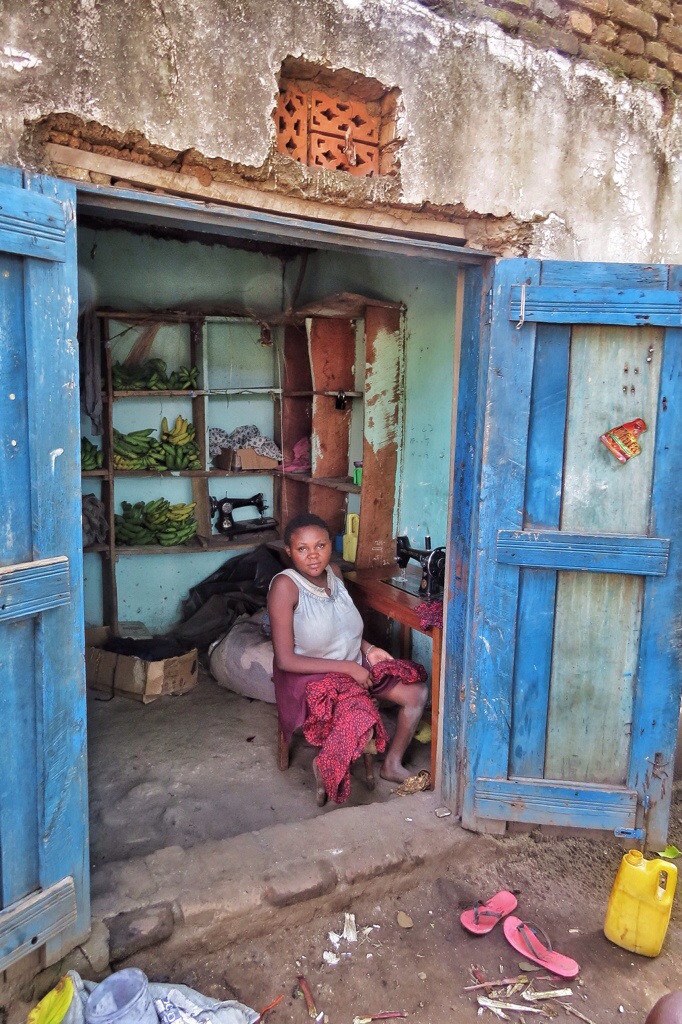 No light by which to read a book: one wind-up torch and one kerosene lamp between the 10 rooms in the building. If you need clothes pressed for school or work, coals from the fire are put into a Victorian flat-iron. There’s no ironing board – use the floor or the dining table. All laundry is done by hand and dried in the yard – if it doesn’t rain. There’s no kettle for a quick cup of tea for guests: make sure there’s always water boiled on the fire for drinking and put into Thermos flasks for hot drinks later in the day
No light by which to read a book: one wind-up torch and one kerosene lamp between the 10 rooms in the building. If you need clothes pressed for school or work, coals from the fire are put into a Victorian flat-iron. There’s no ironing board – use the floor or the dining table. All laundry is done by hand and dried in the yard – if it doesn’t rain. There’s no kettle for a quick cup of tea for guests: make sure there’s always water boiled on the fire for drinking and put into Thermos flasks for hot drinks later in the day
Man that’s hard. How does it compare to your day, or your wife’s?
BUT – and here I hate to sound like I’m trotting out a patronising ‘Mazungu’ cliche – these people are a real community. They are warm, happy, bright, ambitious, generous and above all welcoming.
Man that’s great!


